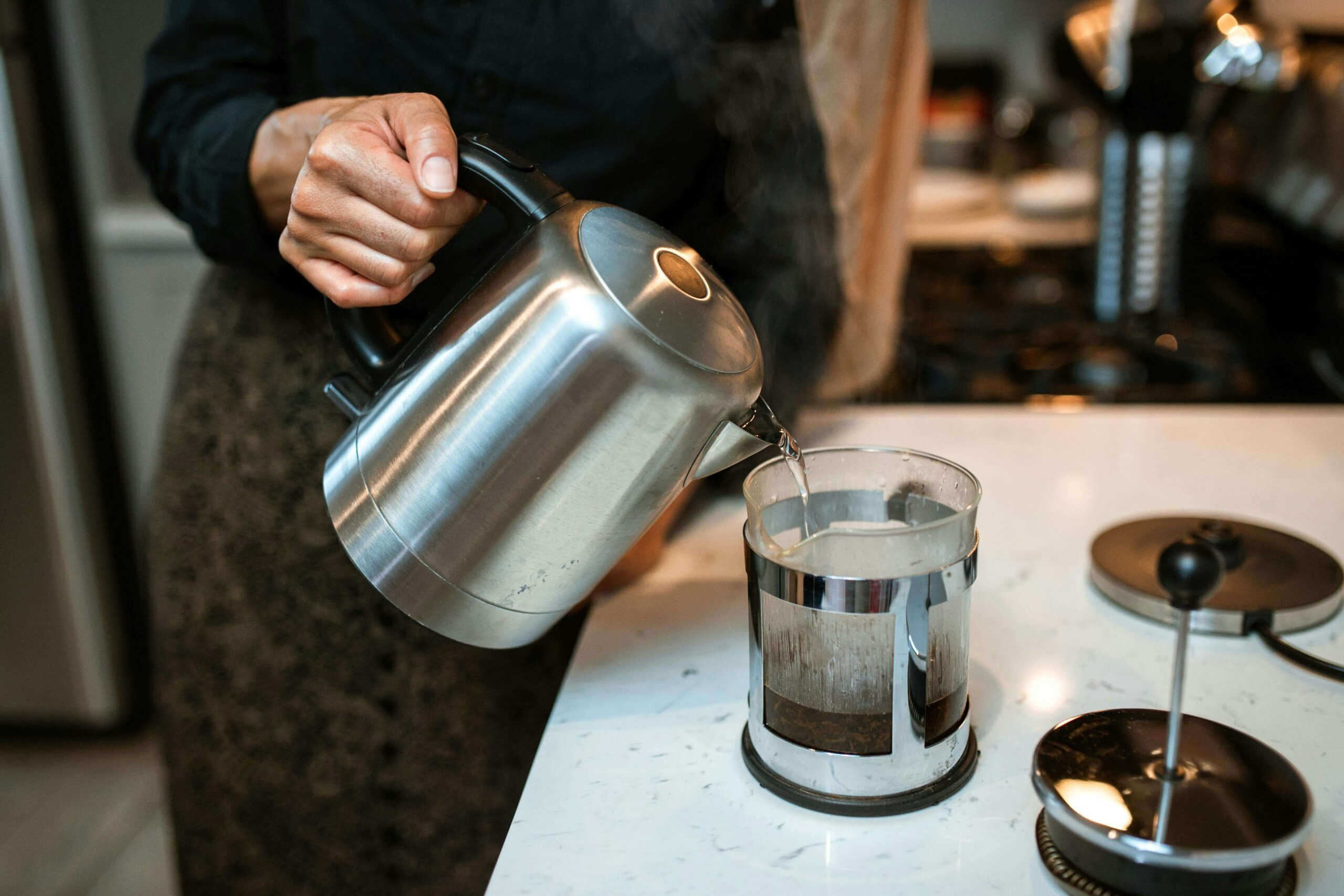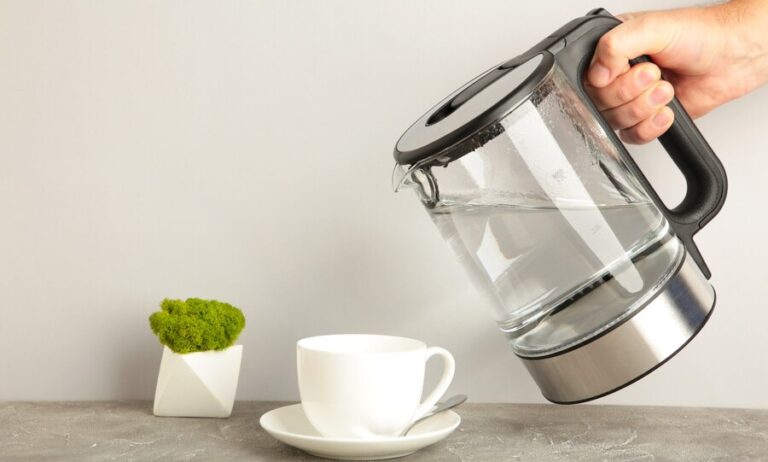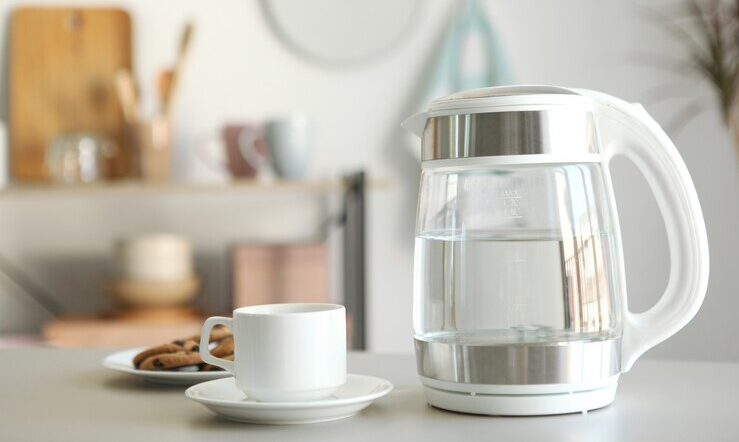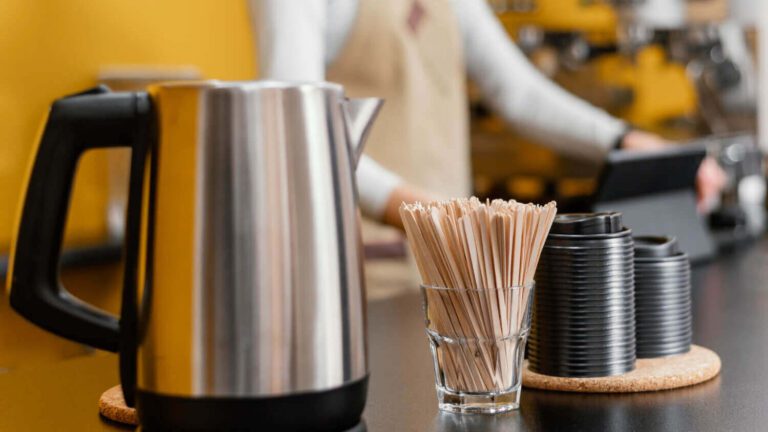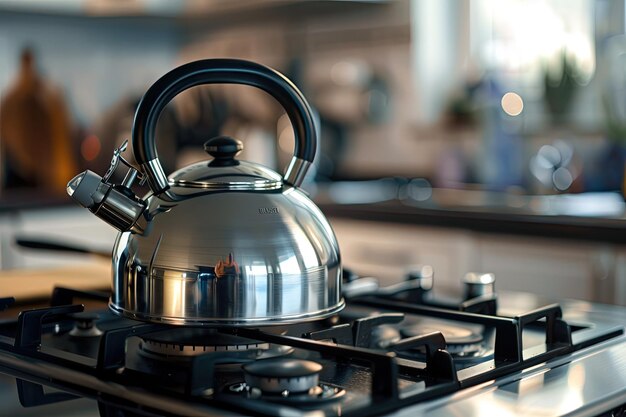How Many Watts Does an Electric Kettle Use? A Basic Guide to Power Usage
Electric kettles have become essential appliances in most modern kitchens. They are convenient ways of heating water for drinking tea, brewing coffee, or any hot cooking process.
If you are among those who are interested in the energy consumption of an electric kettle, you are on the right track. Reading this article, you will learn how many watts an electric kettle consumes and whether you should switch to such an appliance to save electricity.
In this guide, we will explore the wattage of electric kettles, factors that influence power usage, and ways to minimize power usage.
Table of Contents
Typical Wattage of Electric Kettles:
Electric kettles also differ in size and type, so the wattage may vary widely. Depending on their size, common household electric kettles consume between 1200 and 3000 watts of power.
Low-wattage electric kettles:
These kettles require roughly 1000 to 1500 wattage. They take longer to heat water compared to boiled electricity but use less electricity, so they can be used by a single family or a family that does not use a lot of electricity to heat water.
Standard electric kettles:
The standard electric kettles’ most popular range of usage is between 1500 and 2500 watts. This amount of wattage is considered competent enough for boiling water at a quick rate but still not draining your power outlet.
High-wattage electric kettles:
Kettles with a wattage of more than 2500 watts are crafted for quick boiling and large volumes of water. Despite this, they may require more power and consequently burn more energy, leading to high energy bills.
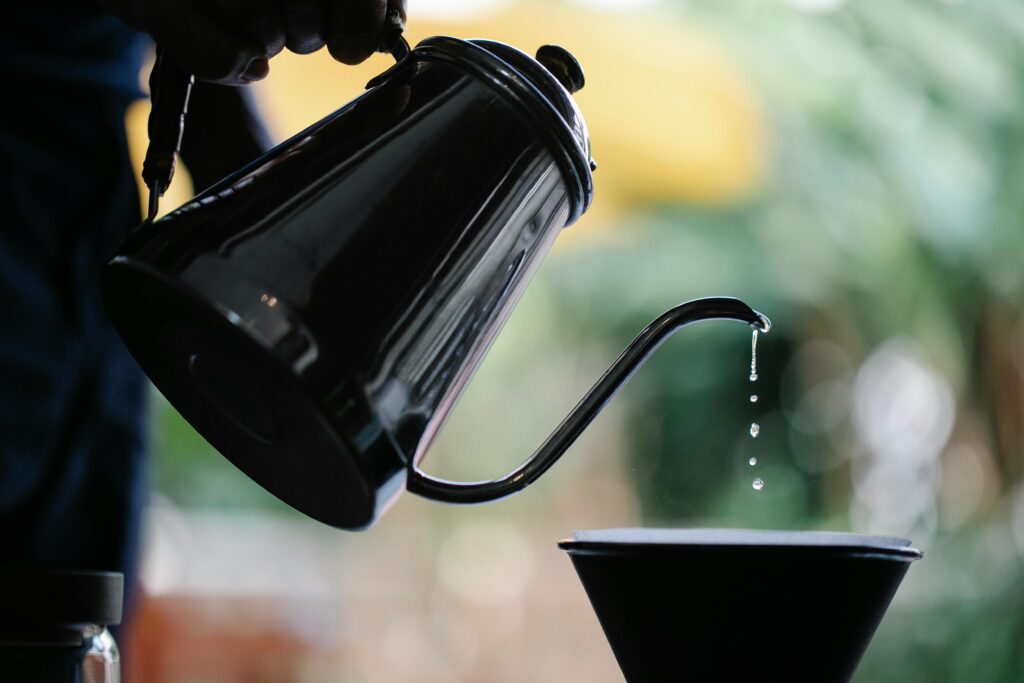
How to Calculate Energy Consumption of an Electric Kettle
To understand how much electricity your kettle uses, you can calculate its energy consumption with a simple formula:
Energy Consumption (kWh) = Wattage (W) × Usage Time (hours) ÷ 1000
For example, let’s say you have a 2000-watt kettle, and you use it for 5 minutes (or 1/12 of an hour) to boil water:
2000W × 1/ 12 hours ÷ 1000 = 0.167kWh
Therefore, your kettle would use around 0.167 kilowatt-hours of electricity to heat water for boiling.
To put this into perspective, if the cost of electricity in your area is 13 cents per kWh, the cost of boiling water once would be:
0.167 kWh ×13 cents = 2.17 cents
Factors Affecting Wattage and Energy Usage:
Several factors can influence the amount of energy an electric kettle uses:
- Water Volume:
When using a kettle, the more water boiled, the more power the kettle will consume. Quantifying the volume of water to be boiled is also necessary to avoid using too much energy in boiling excess water.
- Efficiency of the Kettle:
Some kettles have improved insulation or heating coils that can heat water faster, take shorter times than others, or simply use less power.
- Water Temperature:
Boiling cold water would require more energy than boiling pre-heated or room-temperature water would require.
- Environmental Conditions:
Different climates can also affect a kettle’s performance by freezing water faster, forcing the kettle to constantly reheat the water.
What Is Wattage and Why Does It Matter?
Wattage is a measure of power; basically, it tells you how many watts an appliance consumes in one hour. For an electric kettle, wattage affects the time it takes to heat water and energy consumption, either positively or negatively.
For instance, if used for one hour, the 1500-watt kettle will consume 1.5 kilowatt hours (kWh). But if we calculate the energy used in boiling water, which takes far less time (often less than five minutes), the energy used will be much less.
Energy-Saving Tips When Using an Electric Kettle:
Looking for a way to save energy that is consumed by your kettle? Follow these tips:
- Only Boil What You Need:
The action of boiling more water than required is energy wasteful. For this, depending on how much water you will heat, use the corresponding scale on your kettle.
- Descale Regularly:
A Kettle that has calcified will take longer to heat the water than the first time, requiring more energy. Cleaning plays a crucial role in making the heating element function as it is supposed to.
- Use the Lid:
Boil the water always with the lid closed. The insulating bottom does not allow heat to dissipate, thus increasing the boiling time.
- Pre-heat Water:
If you already have hot water from another device, using it instead of cold and tap water will save you time and energy boiling it.
- Consider a Variable Temperature Kettle:
Some electric kettles, therefore, have temperature adjustment knobs where you can set the temperature at which you want the water boiled, say 80°C for green tea. This feature can be handy when boiling is not needed; it assists in heating food without boiling.
How Wattage Influences Boiling Time:
Boiling requires less time when an electrical appliance has a high wattage rating. In detail, a 1500-watt kettle boils 1 liter in 3 to 4 minutes, while the 3000-watt kettle takes slightly more than 2 minutes per liter.
Here’s a general comparison of how wattage affects boiling time for 1 liter of water:
- 1000 watts: ~6 minutes
- 1500 watts: ~3-4 minutes
- 2000 watts: ~2.5 minutes
- 3000 watts: ~1.5-2 minutes
However, boiling water does not mean it can be prepared in a shorter time; more energy may be used in preparation than is necessary when boiling a small amount of water.
FAQs:
Do all electric kettles have the same wattage?
Not at all. Electric kettles differ in wattage, normally ranging between 1000W and 3000W. Wattage determines boiling time and energy consumption.
Does a higher-wattage kettle cost more to run?
Yes, higher-wattage kettles consume more electricity per hour than low-wattage kettles, but they can boil water faster, so everything balances out depending on how long the kettle is in use.
Is it better to get a low-wattage kettle to save energy?
A low-wattage kettle consumes little electricity compared to the other, but the water takes a long time to heat. Depending on your usage and requirements, the best option has to be determined between the two models.
Can descaling my kettle help save energy?
Yes, periodic descaling will eliminate limescale deposits, and boiling will take place more efficiently, therefore using less energy.
Conclusion: Choosing the Right Wattage for Your Electric Kettle
When selecting an electric kettle, significant consideration is needed between the time it takes to boil water and the amount of electricity used. Although a higher maritime kettle uses electricity, the shorter time required to boil water is ideal compared to the low-wattage version.
On the other hand, a low-wattage kettle can be a good choice for energy consumption once you are not in a position to fix it with short time intervals. If power consumption is a concern, most households will prefer a 1500 to 2200-watt kettle, which should be relatively fast.
So, if you are very sensitive about energy consumption, then there are kettles that can be turned off automatically and have the option of temperature control. Knowing how many watts your kettle consumes and following these few tips, one can minimize his/her energy loss and still have quick and hot tea or coffee.
